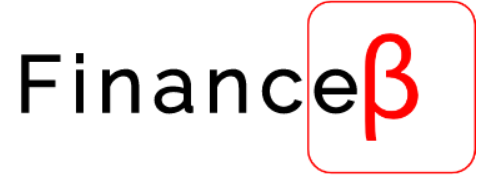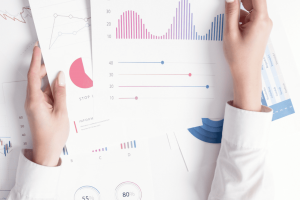Defining Forex
Foreign exchange trading, commonly known as forex trading, involves buying and selling currencies on the international foreign exchange market.
The primary objective of foreign exchange trading is to capitalize on fluctuations in currency values relative to one another.
This dynamic market offers traders the opportunity to profit by correctly predicting changes in currency exchange rates.
Forex trading presents a challenging yet potentially lucrative investment avenue for individuals seeking to navigate the global financial landscape.
What Is Traded in the Forex Market?
At the heart of the global financial system lies the foreign exchange market, where currencies from around the world are traded incessantly.
The bedrock of this market’s operations is currency pairs, which represent the exchange rate between two currencies. Each currency pair consists of a base currency and a quote currency.
For instance, in the widely traded EUR/USD currency pair, the euro (EUR) is the base currency, and the US dollar (USD) is the quote currency.
This denotes the number of US dollars that can be exchanged for one euro.
The exchange rate of a currency pair indicates the relative value of one currency in terms of the other and is subject to constant fluctuations driven by market forces.
The foreign exchange market operates in a dynamic manner, with traders across the globe participating in the buying and selling of currencies.
These traders include central banks, commercial banks, investment banks, hedge funds, corporations, and individual investors.
The value of a currency pair is influenced by various factors, including interest rates, inflation, economic growth, political stability, market sentiment, and supply and demand dynamics. Central banks play a crucial role in managing the value of their currencies by adjusting interest rates and implementing monetary policies that impact the attractiveness of their currency relative to others.
Moreover, economic indicators such as GDP growth, unemployment, trade balance, and consumer confidence provide insights into the health of a country’s economy and influence the demand for its currency.
Political stability and market sentiment also play a significant role, as investors seek currencies perceived as safe havens during times of uncertainty or geopolitical tensions.
The foreign exchange market’s significance extends beyond the exchange of currencies as it facilitates international trade, enables cross-border investments, and serves as a barometer of global economic health.
Its size and liquidity make it an attractive market for speculators seeking short-term profit opportunities.
The Forex Market
The foreign exchange market, also known as Forex or FX, is the largest financial market in the world, with a daily trading volume of over $5 trillion.
It operates 24 hours a day, five days a week, making it truly global.
Unlike the stock market, which is centralized and regulated, the forex market is decentralized, meaning that it is not controlled by any single authority.
Instead, it is made up of a network of banks, financial institutions, corporations, and individual traders who trade currencies with each other.
The forex market is driven by supply and demand.
When there is more demand for a particular currency than there is supply, the value of that currency will rise.
Conversely, when there is more supply of a currency than there is demand, the value of that currency will fall.
The forex market is used by a wide range of participants, including:
- Banks: Banks are the largest participants in the forex market, and they use it to facilitate international trade and investment.
- Corporations: Corporations use the forex market to manage their exposure to currency risk.
- Central banks: Central banks use the forex market to implement monetary policy and manage their foreign exchange reserves.
- Investment management firms: Investment management firms use the forex market to trade currencies as part of their investment strategies.
- Hedge funds: Hedge funds use the forex market to make speculative trades.
- Individual traders: Individual traders use the forex market to trade currencies in an attempt to make a profit.
The forex market is a complex and dynamic market, and it can be difficult to predict how currencies will move.
However, by understanding the factors that affect the supply and demand of currencies, traders can make informed decisions about when to buy and sell currencies.
Unique Features of the Forex Market
Forex offers traders a distinct set of features that make it an attractive trading environment such as;
Global Reach and Liquidity: The forex market is the largest and most liquid financial market globally, with a daily trading volume exceeding $5 trillion. This vast size and liquidity ensure easy entry and exit of positions, even with substantial amounts of capital. The market’s size also makes it less susceptible to manipulation and price manipulation.
High Leverage: One of the key features of the forex market is leverage. Leverage allows traders to control large amounts of currency with a relatively small amount of capital, increasing potential returns while also elevating the risk of loss. For example, with leverage of 100:1, a trader can control $100,000 worth of currency with only $1,000 in their account.
Wide Range of Currency Pairs: The forex market offers a broad range of currency pairs, providing traders with the opportunity to diversify their portfolios and potentially reduce risk. The most widely traded currencies include the US dollar, Euro, Japanese yen, British pound, and Swiss franc, considered the most stable.
24/5 Trading: The forex market is open 24 hours a day, five days a week, allowing traders to trade around the clock. This flexibility is particularly advantageous for traders who have jobs or other commitments that prevent them from trading during traditional market hours.
Transparency: The forex market is highly transparent, providing traders with easy access to market data such as prices and trading volume. This transparency allows for informed trading decisions and effective monitoring of positions.
Low Transaction Costs: Compared to other financial markets, transaction costs in the forex market are relatively low. This makes it an attractive option for traders who want to make frequent trades without incurring excessive costs.
Accessibility: The forex market is accessible to traders of all levels of experience and capital. With the advent of online trading platforms, even retail traders can easily access and participate in the forex market.
Variety of Trading Strategies: The forex market offers a wide range of trading strategies, from short-term scalping to long-term position trading. This flexibility allows traders to choose the strategy that best suits their trading style and risk tolerance.
Hedging Opportunities: The forex market can be used for hedging purposes, as traders can take positions in multiple currencies to reduce exposure to currency risk.
Potential for High Returns: The forex market can offer the potential for high returns, especially for traders who use leverage and have a sound trading strategy. However, it is essential to remember that forex trading also involves the risk of substantial losses.
Frequently Asked Questions? (FAQs)
- What is forex trading? Forex trading involves buying and selling currencies on the international foreign exchange market to capitalize on fluctuations in currency values relative to one another.
- What is traded in the forex market? Currency pairs, which represent the exchange rate between two currencies.
- What is the role of central banks in the forex market? Central banks play a crucial role in managing the value of their currencies by adjusting interest rates and implementing monetary policies that impact the attractiveness of their currency relative to others.
- What are the factors that influence the value of a currency pair? Interest rates, inflation, economic growth, political stability, market sentiment, and supply and demand dynamics
- What is the significance of the forex market? The forex market facilitates international trade, enables cross-border investments, and serves as a barometer of global economic health.
- What is the size of the forex market? The forex market is the largest financial market in the world, with a daily trading volume of over $5 trillion.
- How is the forex market regulated? The forex market is a decentralized market and is not regulated by any single authority.
- How can I participate in the forex market? You can participate in the forex market through a retail forex broker.
- What are the benefits of trading forex? The benefits of trading forex include 24/5 trading, high liquidity, leverage, and the potential for high returns.
- What are the risks of trading forex? The risks of trading forex include the risk of losing money, the risk of fraud, and the risk of regulatory changes.


